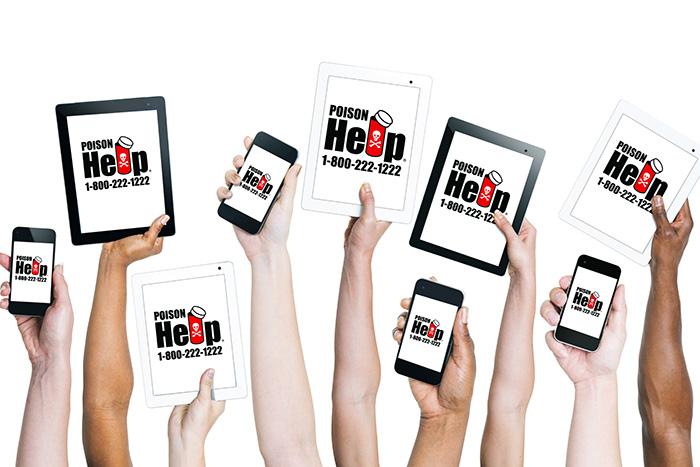
As we mark National Poison Prevention Week, March 16-22, there is a push to make sure we’ll program our phone with the poison control center help line number: 1-800-222-1222.
The “Count Me In!” campaign hopes to raise awareness and remind the public that the Connecticut Poison Control Center at UConn Health provides free, confidential medical advice 24 hours a day, seven days a week, every day of the year.
Amy Hanoian-Fontana, community education specialist, urges you to take a few seconds to program your phone for greater peace of mind. “You never know when you’ll need us. You can call the number anywhere in the U.S. and it connects you to the closest designated poison center.”
Also in observance of Poison Prevention Week, centers around the country are focusing on a different “prevention theme” each day to raise awareness about poisoning dangers.
Monday, March 17: Children Act Fast … So Do Poisons
- Over 50 percent of calls to poison centers involve children 6 and younger. Keep medicines and cleaning supplies locked up and out of reach.
- When it comes to poison prevention, child-resistant is not child-proof.
- Tell children what medicine is and why you must be the one to give it to them. Never call medicine “candy” to get them to take it.
Tuesday, March 18: Poison Centers – Saving You Time and Money
- Poison centers offer some of the best health value around: Fast, confidential, expert medical advice 24/7/365 for free.
- More than 90 percent of cases from the public can be managed without a hospital visit.
- Poison centers save $1.8 billion a year by keeping people out of hospitals, getting them back to work sooner, and teaching prevention.
Wednesday, March 19: Poisonings Span a Lifetime
- Poisoning is the second leading cause of death from injuries in the U.S. behind only motor vehicle crashes.
- Most calls to poison centers are about children, but most people who die from poisons are adults.
- Poison centers want to remind adults to take and give medicine safely: read the label every time and follow the directions. Only give or take medicine with the lights on, and with glasses on if you need them, to ensure that you can see the label.
Thursday, March 20: Home, Safe Home
- More than 90 percent of poisonings happen in people’s homes, mainly in the kitchen, bathroom and bedroom.
- Never store household and garden chemicals in food containers like cups or bottles.
- Never mix household cleaning products together. Mixing them could create a poisonous gas.
Friday, March 21: Spotlight on Prescription Painkillers
- The Food and Drug Administration is calling prescription drug abuse an “epidemic.” Get rid of prescription painkillers when you are finished with them. Don’t give a drug seeker the chance to find some in your home.
- If you are currently using prescription painkillers, lock them up where only you can get to them.
- Prescription painkiller abuse does not draw boundaries. This epidemic hits the young and old, men and women, and all income levels.
Follow UConn Health on Facebook, Twitter and YouTube.



